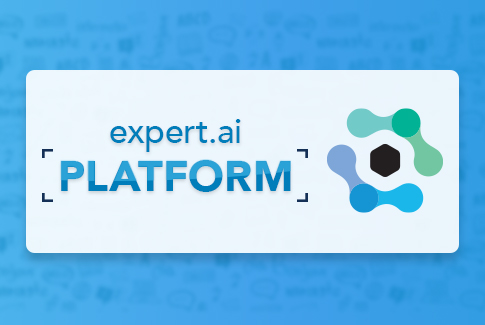
Every day, billions of internet users type questions into search engines via smartphones, desktop computers or IoT devices, 90 percent of whom are using Google. As a result, each time the company releases a new algorithm into cyberspace, top-ranked SEO marketers and webpage owners become fearful of losing their page-one rankings.
However, the company’s latest iteration is notably different from those previously released. Now, the tech giant has decided to take the next step and marry its latest algorithm with natural language processing (NLP).
Many believe that this dynamic pairing could prove to be a game changer for search. But Google isn’t the only company that’s ushering in the future of NLP-powered search.
The Power of Search
As the primary tool for people to access information, the importance of search engines can’t be overestimated. Contrary to what you might assume though, many of the most asked internet questions have simple, straightforward answers. For example, “What is my IP address?” has a definite, easy-to-understand answer.
But what happens when you ask a search engine like Google a more complex question such as, “What are the cultural differences between the United States and Italy?”
To answer a question like the one above, a search engine must be able to perform a contextual search, or one that captures the intent of the user, to produce highly relevant results.
In the previous example, this means understanding that subtopics like business practices, mealtimes and even politics should be all be included in the search results for “culture practices”. With this information, the user could compare country-specific results and receive the most robust answer to the query.
What Is MUM?
There’s a new algorithm on the block. The Multitask Unified Model, commonly referred to as “MUM”, is designed to answer questions that don’t have simple answers. Back in 2018, BERT the language model that preceded MUM, was successful in identifying patterns in words and sentences, establishing a baseline comprehension of word relationships.
MUM, however, is purported to be 1,000 times more powerful than BERT. This impressive claim is based on the idea that MUM has 1,000 times more neural nodes than BERT, allowing it to process more information faster. However, like all of Google’s algorithms, MUM was trained using the entirety of the open web (minus low-quality content) so it has a vast knowledge base.
MUM’s Impact on Search
Using natural language processing (NLP), MUM can effectively combine multiple searches into one and return comprehensive, expert-level results. The algorithm is also multimodal, so it can provide visual aids such as video content, images and even links to other relevant results — and it can do this in 75 languages! MUM’s impressive linguistic abilities are significant because search results in other languages are rarely returned, resulting in missed information for the user.
For example, imagine that you had previously visited Japan but wanted to know the difference between cuisine in one area versus another. If your search is conducted in English, you will miss many of the most relevant results which are likely to be returned in Japanese. With MUM, however, all results are shown. Likewise, MUM delivers these results translated so the user experience is seamless.
Similarly, as a multimodal technology, MUM can also understand images using descriptor labels. This means that future searchers may soon be able to find the highly detailed answers by entering a query and submitting a photo.
For example, someone who biked the Camino de Santiago in Spain may want to know if they can use the same type of bike at Big Sur trail in California. Instead of typing a description of their bike into Google, then could just upload a photo along with their question, thereby ensuring the most relevant results possible.
How expert.ai Is Changing Search
Every new technology has its early adopters, and NLP is no exception. In fact, some companies have been ahead of the technology curve for years. The expert.ai platform has been years in the making and is now a leader in enterprise NLP search solutions. It has accomplished this by enabling three types of search capabilities:
- Conceptual search – facilitated by a rich knowledge graph that enables users to extract both documents that result from a given query as well as any related to conceptually similar information (e.g., a search for “cars” would also return documents with keywords such as “SUV”, “sedan”, “convertible” and “BMW”)
- Natural language search – using a symbolic AI approach (i.e., IF/THEN logic structure) the algorithm takes a human-like approach to search, returning results that account for multiple interpretations of a singular query, including those with slang, abbreviations and even misspellings
- Customized metadata – the results from the symbolic text analysis allow the user to create customized ranking systems. For example, a financial company could use the expert.ai platform to get search results on a competitor each time a competing product is launched.
With powerful search capabilities and customizations, it’s easy to see why expert.ai is a leader in this emerging technology. Similarly, as the company specializes in enterprise solutions, its platform is already revolutionizing how companies do business — a win to which MUM can’t even lay claim.
The ability to type a query into a search engine and get a meaningful result is powerful. With the click of a button, you have access to a wealth of knowledge, content and media. Whether it’s Google’s algorithm or the expert.ai NLP platform, the future of search is already here, and it will forever change the way that we access and process information.
Are you ready for the future of NLP-powered search?


